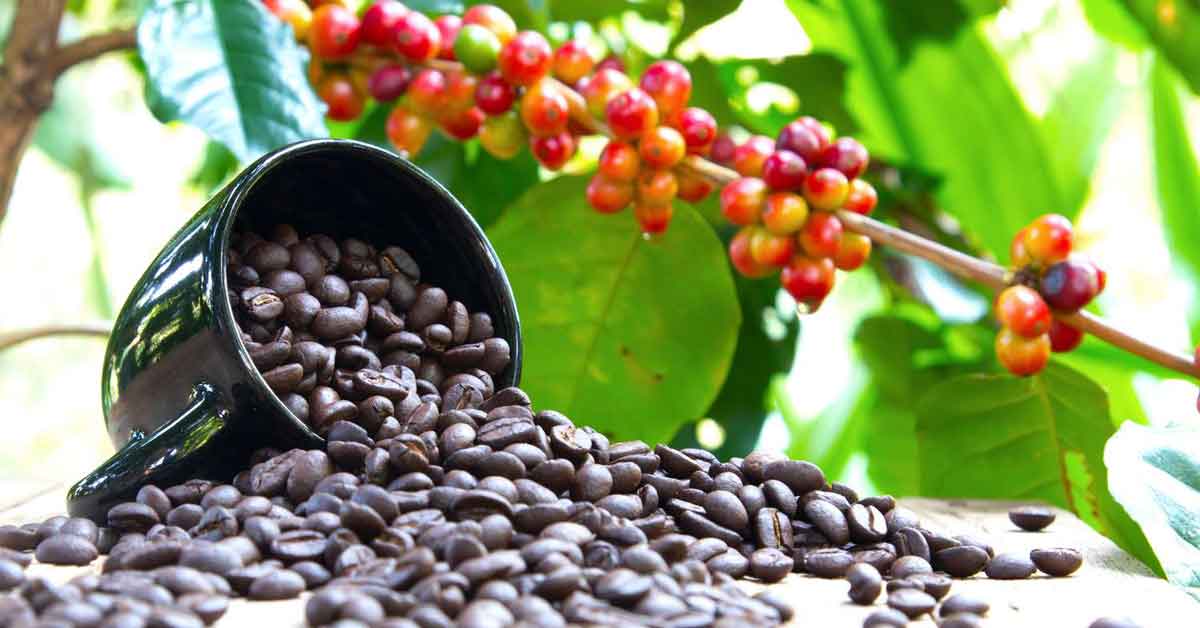Do Coffee Grounds Attract Rats
A cup of joe is the perfect start to many people’s day. But what about the leftovers? Do coffee grounds attract rats, or could they serve as a natural deterrent against these unwanted guests? The scent of coffee grounds is a powerful element, with some suggesting it can repel pests like fruit flies, while others worry it might attract critters like roof rats.
Exploring the topic of coffee grounds as a pest control solution, this guide dives deep into whether coffee residues are a good idea for composting, if they’re a potential food source for rodents, or if they could even act as a natural rodent repellent. Discover how simple household items like coffee beans, cayenne pepper, and essential oils could potentially play a role in maintaining a pest-free environment.
Join us as we discuss the environmental protection agency’s view on the use of coffee grounds, and whether sprinkling coffee grounds around your garden plants is beneficial or detrimental.
Ultimately, we aim to help you discern whether coffee grounds are a good choice for compost and pest management, or if you need to reach out to pest control professionals for a more effective method. Let’s delve into the world of coffee grounds and rats.
Do Coffee Grounds Attract Rats?
In a word, no. Contrary to common misconceptions, the smell of coffee grounds does not attract rats. Coffee, with its strong odor, is more likely to repel rats than attract them. The reasoning behind this lies in the fact that rats, like many pests, are highly sensitive to strong smells. They tend to avoid areas that have a strong scent, such as the strong aroma of coffee grounds.
But what about food waste mixed with coffee grounds? If compost piles or compost bins contain a blend of food scraps, including leftover coffee grounds, they could indeed attract rats and other pests. The food odors, not the coffee grounds, are the main reason for this attraction. Rats are particularly drawn to organic material and food sources.
Thus, the key takeaway is that it’s not the coffee grounds per se that attract rats, but the presence of other potential food sources within your compost heap or bin. If you want to use coffee grounds in your compost or garden, it’s crucial to mix them with other organic matter like grass clippings or egg shells, and ensure your compost bin is well-sealed to prevent rat infestation.
Moreover, it’s important to remember that, while coffee grounds repel rats, they are not an ultimate rat repellent. For the best results and complete rat control, employing a combination of deterrents and preventative measures is the most effective way. These might include using natural deterrents such as cayenne pepper, peppermint oil, clove oil, eucalyptus oil, chili powder, or even professional pest management professionals for more stubborn infestations.
Effectiveness of Coffee Grounds as a Repellent
Use of Coffee Grounds as a Natural Repellent
Coffee grounds, with their potent smell, have often been hailed as a potential natural rodent repellent. But how effective are they in reality?
To understand this, it’s crucial to delve into the nature of rats. Rodents, by instinct, avoid strong smells. These powerful odors are often associated with toxic or harmful substances, triggering their survival instincts to retreat. Coffee grounds, boasting a potent aroma, fall into this category of strong-smelling substances. When used in small amounts, dry coffee grounds can help mask the smell of food odors in your compost bin or garden, dissuading rats from venturing too close.
However, while coffee grounds may deter rats to some extent, they are not a foolproof method of pest control. Rats are resourceful creatures, and hunger may drive them to overcome their aversion to strong odors. Therefore, coffee grounds alone may not be the best solution for a serious infestation.
Moreover, it’s essential to remember that too much coffee can be a bad thing for your compost or garden. Coffee grounds, especially in large quantities, can increase the acidity of your soil. While acidic soil can benefit certain types of garden plants and fruit trees, too much can harm your plants.
In summary, while the use of coffee grounds as a natural repellent can be a good way to prevent rats, they should not be the only method you rely on. For more serious infestations, you might need stronger deterrents or the assistance of pest control professionals. As with many things, moderation is key – balance the use of coffee grounds with other organic material for the best results in pest control and composting.
Alternative Natural Repellents
While coffee grounds may not be a foolproof way to keep rats at bay, there are plenty of other natural rodent repellents that you can use. Often, these remedies are just as accessible as coffee and might offer a more potent deterrent to the discerning rat. Here are a few alternatives:
Cayenne Pepper and Other Hot Spices
Just as rats dislike the strong smell of coffee, they detest the hot, pungent aroma of cayenne pepper, chili powder, and red pepper. Sprinkling these spices around potential entry points or near your compost pile can help deter rats.
Essential Oils
Peppermint oil, eucalyptus oil, and clove oil are known for their strong scents, which rats find unpleasant. A few drops on a cotton ball placed strategically around your property can serve as a good deterrent. However, remember to replace these balls regularly to maintain the strength of the aroma.
Cat Urine
Rats naturally avoid areas frequented by their predators. Cat urine has a strong odor and can act as a natural deterrent. If you own a cat, you might already have this natural repellent in your home.
Steel Wool
Although not a scent-based deterrent, steel wool can be an effective natural rodent repellent. Rats dislike the texture of steel wool and will avoid chewing through it, making it a good material for blocking entry points.
Diatomaceous Earth
A natural powder made from tiny fossilized aquatic organisms, diatomaceous earth can be an effective repellent. It causes dehydration in rats and other pests, discouraging them from visiting areas where the powder is present.
While these natural rodent repellents can offer some protection, they might not be enough if you’re facing a large infestation. In such cases, it may be necessary to consult with pest management professionals for the best solution. Remember, prevention is better than cure. Keep food waste sealed and minimize potential water sources to deter rats in the first place.
Using Coffee Grounds in Gardens and Compost
While there may be some debate over coffee grounds as a rat deterrent, their value as an addition to garden soil and compost piles is undeniable.
Benefits of Coffee Grounds for Soil
Coffee grounds are rich in nitrogen, a nutrient that is vital for plant growth. They also contain smaller amounts of essential minerals such as potassium and phosphorus. When mixed into the soil, coffee grounds release these nutrients, enriching the soil and nourishing the plants.
In addition, coffee grounds can improve soil structure. They encourage the growth of beneficial microorganisms and earthworms, both of which can enhance soil fertility and plant health. Furthermore, the use of coffee grounds can improve soil drainage and water retention, benefitting plants that prefer well-drained yet moist soil.
However, it’s important to note that coffee grounds can lower the pH level of your soil, making it more acidic. While this is a good thing for acid-loving plants like azaleas, rhododendrons, and blueberries, not all plants thrive in acidic conditions. For plants that prefer neutral to alkaline soil, too much coffee grounds can hinder their growth.
Lastly, while coffee grounds do have a strong smell, it is not long-lasting once they are mixed into the soil. As such, while they may offer a temporary deterrent to pests like rats, their scent will not last for a long time. As a result, they may not be the best solution for long-term pest control.
Therefore, while coffee grounds can be a great addition to your garden or compost pile, they should be used with consideration of the type of plants you have and in conjunction with other pest control measures for best results.
Preventing Rat Infestations
Rat infestations can be a serious issue, leading to health issues and potential damage to your home or garden. Prevention is key in dealing with rats, and the first place to start is by eliminating potential food sources and habitats.
Start by sealing your food waste, especially compost heaps or bins, as they can become a potential food source for rats. In addition, pet food should be kept sealed and inaccessible to rats. Clean up any fruit that falls from fruit trees in your yard, as this can also attract rats.
Water sources should also be minimized. Rats need water to survive, so by removing any standing water or leaky pipes, you make your home less attractive to them.
In addition, seal any potential entry points into your home. Rats can squeeze through incredibly small spaces, so even the smallest hole can be an entry point. Steel wool or caulk can be used to seal these gaps.
Lastly, consider using natural rodent repellents around your home. From the scent of coffee grounds to essential oils, or even the use of cat urine, these can all act as deterrents. However, if an infestation persists, it might be time to call in the pest management professionals.
By implementing these steps, you can ensure that your home remains a rat-free zone, allowing you to enjoy your coffee in peace, knowing that you’ve done your best to deter these unwelcome guests.
Remember, while coffee grounds can help in some ways, it takes a comprehensive approach to effectively prevent a rat infestation. So, go ahead, enjoy your morning brew, and use those leftover grounds to enrich your garden. Just remember to also follow other preventative measures for the best results.
Impact of Strong Smells on Rats
A rat’s sense of smell is one of its most potent tools. These creatures use their noses for everything from finding food to avoiding predators and harmful substances. Consequently, strong smells can have a significant impact on rat behavior, often acting as deterrents that can drive rats away from certain areas.
For instance, the strong aroma of coffee grounds, hot peppers, essential oils, and even certain household items like white vinegar or cat urine can be repulsive to rats. These substances emit odors that rats find overwhelming and offensive, making them a natural deterrent.
Rats also associate certain strong smells with danger or toxic substances. The strong odor of chemicals or harmful substances triggers their instinct to stay away.
However, the effectiveness of these smells as rat deterrents often relies on the potency and freshness of the aroma. Over time, the smell of coffee grounds, essential oils, or other strong-smelling substances can dissipate, reducing their effectiveness as a deterrent. Hence, it’s essential to regularly replace or replenish these substances to maintain their potency.
Moreover, it’s important to remember that while strong smells can deter rats, they are unlikely to eliminate a rat infestation entirely, particularly if the rats have access to a reliable food source. In such cases, it’s important to employ other pest control methods, possibly even seeking the help of pest management professionals.
In conclusion, while strong smells can have a significant impact on rats, it’s always best to adopt a comprehensive approach to rat control. This involves using a combination of tactics, including good sanitation practices, sealing potential entry points, and using natural and professional repellents as necessary.
Risks of Overusing Coffee Grounds
While the benefits of using coffee grounds in the garden or compost pile are significant, overuse can lead to some unintended consequences. Understanding these risks can help you make the most out of your coffee grounds without damaging your garden.
Altering Soil pH
Coffee grounds are acidic. When used in large amounts, they can alter the pH of your soil, making it overly acidic. This can be detrimental to plants that prefer neutral or alkaline conditions. Therefore, it’s essential to use coffee grounds sparingly and conduct regular soil tests to keep an eye on your soil’s pH levels.
Stunting Plant Growth
Believe it or not, too much of a good thing can be bad for your plants. Overloading your garden with coffee grounds can inhibit plant growth, especially in young plants and seedlings. The high caffeine content in coffee grounds can stunt the growth of nearby plants, and in extreme cases, can even lead to caffeine overdose.
Attracting Pests
While coffee grounds may not attract rats, they can lure other unwanted pests, like fruit flies. These insects are drawn to the smell of coffee grounds and may become a nuisance if the grounds are not properly managed. To avoid this, ensure to mix your coffee grounds well into your compost pile or soil.
Overloading Soil with Nitrogen
Coffee grounds are rich in nitrogen – an essential nutrient for plants. However, too much nitrogen can overstimulate plant growth, leading to lanky, weak plants that are more susceptible to disease and pest attacks. Balance the nitrogen from coffee grounds with brown compost materials, like dried leaves or straw, to provide a balanced diet for your plants.
In conclusion, moderation is key when it comes to using coffee grounds in your garden. Used appropriately, they can be a great addition, providing valuable nutrients and even serving as a natural deterrent against pests. But remember to keep an eye on your soil conditions and plant health to avoid any potential negative impacts of overusing this robust resource.
Practical Tips for Using Coffee Grounds
Utilizing coffee grounds in your garden can provide numerous benefits if done appropriately. They can improve soil health, act as a natural pest deterrent, and even help certain plants thrive. Here are some practical tips to maximize the potential benefits of coffee grounds in your garden:
Balance the Usage of Coffee Grounds
While coffee grounds can improve soil fertility, moderation is key. Use coffee grounds as part of a balanced compost mixture to avoid overloading your soil with nitrogen or making it too acidic.
Utilize Coffee Grounds as Mulch
Coffee grounds can be a great addition to your mulch. They help retain soil moisture, suppress weeds, and slowly release nutrients into the soil. Just ensure to layer them thinly to avoid the formation of a water-repellent crust.
Consider Plant Preferences
Certain plants, such as azaleas, roses, and blueberries, love acidic soil conditions that coffee grounds can create. Conversely, plants that prefer alkaline soil may not respond well to coffee grounds. Understand your plants’ needs before applying coffee grounds.
Proper Storage and Disposal of Coffee Grounds
Proper storage and disposal of coffee grounds are crucial to prevent unwanted pests and to preserve their beneficial properties.
Store Coffee Grounds Correctly
Store coffee grounds in an airtight container to maintain their freshness and to prevent them from attracting pests like fruit flies. If you plan to use the grounds outdoors, store the container in a cool, dry location to prevent mold growth.
Dispose of Excess Coffee Grounds Thoughtfully
If you generate more coffee grounds than your garden can utilize, consider sharing them with fellow gardeners, local schools, or community gardens. Alternatively, many waste management services accept coffee grounds as part of their green waste collection programs.
Spread Out the Application Over Time
Avoid dumping large quantities of coffee grounds in the same location at once. Spread your application over time and across different parts of your garden to avoid creating overly acidic conditions or attracting pests.
Following these practical tips for using coffee grounds can help you enhance your garden’s health without inviting unwanted pests or creating unfavorable soil conditions. Remember, while coffee grounds can be a valuable addition to your gardening practices, like any resource, they should be used wisely and in moderation.
Conclusion
To answer the original question: do coffee grounds attract rats? The answer is generally no. Coffee grounds are not a primary attractant for rats. However, they don’t serve as a potent repellent either. While coffee grounds may discourage some rats due to their strong smell, they are unlikely to deter a determined rat population, especially in the presence of more appealing food sources.
That being said, coffee grounds can still play a role in an integrated pest control strategy. Their strong smell, when combined with other natural repellents like cayenne pepper, peppermint oil, and eucalyptus oil, can help to deter pests. Furthermore, using coffee grounds in your garden or compost bin can enrich the soil, improve plant health, and contribute to a more sustainable, environmentally-friendly garden.
However, caution should be exercised. Overuse of coffee grounds can alter the soil’s pH, stunt plant growth, and even attract other unwanted pests. It’s crucial to balance the use of coffee grounds with other compost materials and observe your soil conditions and plant health regularly.
Proper storage and disposal of coffee grounds are equally important. By using an airtight container for storage, you can prevent the attraction of pests like fruit flies. If you have an excess of coffee grounds, consider sharing them with fellow gardeners or disposing of them through green waste collection programs.
In summary, while coffee grounds are not the silver bullet for rat control, they can certainly be a part of a broader, more integrated approach to pest management and garden health. Used wisely and in moderation, coffee grounds can offer numerous benefits for both your garden and the environment.







